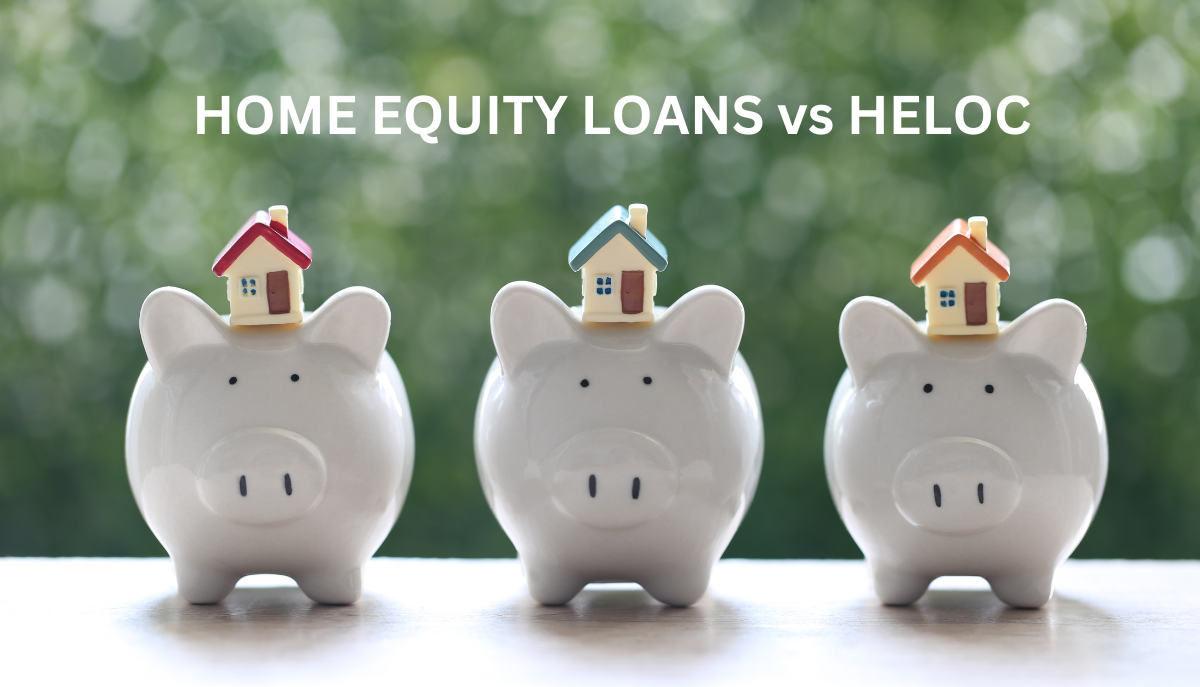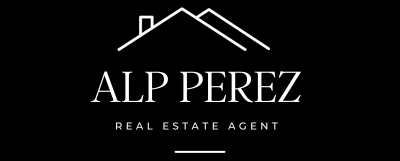Comparing Home Equity Loans vs. HELOC: Which Is Right for You?
When it comes to utilizing the equity you’ve built up in your home, you have a couple of popular options: Home Equity Loans and Home Equity Lines of Credit (HELOC). Both options allow homeowners to borrow against the value of their home, providing access to funds that can be used for renovations, debt consolidation, or even to fund educational pursuits.
However, choosing between a fixed-rate home equity loan and a more flexible HELOC can be a challenge. Understanding the key differences and how each might align with your financial situation and goals is crucial. This comparison will help you decipher which option might be best suited for your needs.
Understanding Home Equity Loans and HELOCs

Property investment and house mortgage financial concept. Hand putting money coin stack step up growing growth house
What is a Home Equity Loan?
A home equity loan, often referred to as a second mortgage, enables homeowners to borrow money by taking advantage of the equity in their house. The term “equity” refers to the difference between the market value of the house and the balance remaining on the existing mortgage.
Home equity loans provide a fixed amount of money that is received in a lump sum. They are popular because they usually offer fixed interest rates, which make monthly payments predictable and stable. The loan is repaid over a set period, commonly 5 to 15 years, through fixed monthly payments that include both principal and interest.
What is a Home Equity Line of Credit?
A Home Equity Line of Credit (HELOC) is another way to access the equity in your home but functions more like a credit card. It provides a revolving credit line, meaning you can borrow up to a certain limit, repay, and then borrow again within the draw period (usually 10 years).
The interest rates on HELOCs are typically variable, which means they can change over time based on the prevailing market rates. During the draw period, borrowers often have the option to make interest-only payments. After the draw period ends, the borrower enters the repayment phase, where the borrowed amounts must be repaid, often over a period of 10 to 20 years.
HELOC vs Home Equity Loan: Key Differences
Interest Rates
One of the primary differences between home equity loans and HELOCs is the structure of their interest rates. Home equity loans typically have fixed rates, making it easier to budget for regular repayments. In contrast, HELOCs often feature variable interest rates, which can lead to fluctuating payment amounts that depend on the changes in market interest rates. This makes HELOCs somewhat unpredictable compared to home equity loans.
Repayment Terms
Repayment terms for home equity loans are straightforward: you receive the total loan amount upfront and repay it over a fixed term with steady payments that include interest and principal.
On the other hand, HELOCs offer more flexibility, with the option to borrow as much as needed up to the credit limit during the draw period and variable repayment options thereafter. However, flexibility also means higher potential for fluctuating debt levels and varying monthly payments.
Access to Funds
With a home equity loan, the entire loan amount is disbursed in one lump sum when the loan closes. This makes it ideal for large expenses with predictable costs. Conversely, a HELOC provides a credit limit that you can draw on as needed, making it suitable for ongoing expenses where the total cost is not known upfront, such as tuition payments or staggered home improvement projects.
Eligibility and Approval Process
Understanding the eligibility criteria and approval process for both Home Equity Loans and HELOCs can help you decide which option might suit your financial situation better. While both types of loans require equity in your home, the specifics of eligibility and the approval process vary.
Requirements for Home Equity Loans
To qualify for a home equity loan, lenders primarily look at three key factors: the amount of equity you have in your home, your credit score, and your debt-to-income ratio. Typically, you need:
– A minimum of 15-20% equity in your home.
– A credit score of 620 or higher, though some lenders may require a higher score for better interest rates.
– A debt-to-income ratio (DTI) below 43%. This means your total monthly debt payments, including your new home equity loan, should not exceed 43% of your monthly income.
Lenders may also require a formal appraisal of your property to determine its current market value.
Requirements for HELOCs
For a Home Equity Line of Credit, the requirements are similar but can be slightly more flexible, depending on the lender. Requirements generally include:
– At least 15-20% equity in your home.
– A credit score often starting around 620; however, better terms are reserved for those with higher scores.
– A DTI ratio that is typically under 50%, allowing for a bit more leniency than home equity loans.
HELOCs also require a home appraisal and thorough documentation but feature an additional approval aspect: the initial setup of the credit line.
Choosing the Right Option for You
Considerations for Selecting a Home Equity Loan
When deciding if a home equity loan is the right financial tool for you, consider several key factors. First, assess your need for a lump sum and a fixed interest rate. Home equity loans are ideal for large, one-time expenses such as home renovations or consolidating high-interest debt. The fixed interest rate offers stability since it remains constant throughout the life of the loan, making budgeting easier.
Also, think about your repayment capacity. If you prefer the predictability of fixed monthly payments that cover both principal and interest, this might be the better option. Assess the equity in your home too—as a home equity loan might require less equity than a HELOC. Lastly, consider your credit situation. While you still need good credit to qualify for favorable terms, some lenders might be more lenient with home equity loans compared to HELOCs.
Considerations for Selecting a HELOC
For those leaning towards a HELOC, there are several factors to consider. Evaluate your financial discipline; a HELOC’s flexibility can be beneficial if you have intermittent but significant financial needs and can responsibly manage and repay what you borrow.
Interest rates are another crucial factor. If you are comfortable with the risk of variable rates and potentially lower initial costs, a HELOC might work for you. Also, consider your ongoing financial needs; if you anticipate requiring funds over an extended period, rather than in a lump sum, the draw period of a HELOC offers the ability to borrow as needed.
Finally, think about the long-term implications of opening a line of credit that requires only interest payments initially. Ensure you have a plan to manage the larger payments once the repayment period kicks in. Deciding between a home equity loan and a HELOC largely depends on your specific financial situation, your comfort with risk, and your future financial goals.
Conclusion
Choosing between a home equity loan and a HELOC depends largely on your financial situation, how you plan to use the funds, and your comfort level with potential changes in interest rates. A home equity loan might be your best bet if you need a lump sum for a specific project and prefer stable repayment terms. On the other hand, a HELOC could be more suitable if you anticipate needing varying amounts over time and are comfortable with a little interest rate risk.
Consider your ability to repay under different scenarios and how each option impacts your overall financial health. Remember, consulting with a financial advisor can also provide personalized insights tailored to your unique circumstances.
About The Author
ALP PEREZ
Alp Perez is a Montreal based award winning real estate agent assisting home buyers and sellers in Montreal and surrounding areas. His real estate services include but not limited to: Price analysis based on the comparable listings sold in your area , Market Analysis for sellers and buyers, Recommendations on how to increase the value of your property , Customized Search engine marketing campaigns for each property, Negotiating on behalf of the buyer / seller depending on who he represents in the deal, Connecting buyers and sellers with his well known industry partners such as inspectors, mortgage brokers, notaries, land surveyors, renovators and etc. Whether you are A homeowner looking for the best real estate agent to get top $ for your property and sell your house or condo fast , A buyer looking for MLS agent Feel free to reach out to him at (514) 527-2022 or via his email : alpperez@realtormontreal.ca


